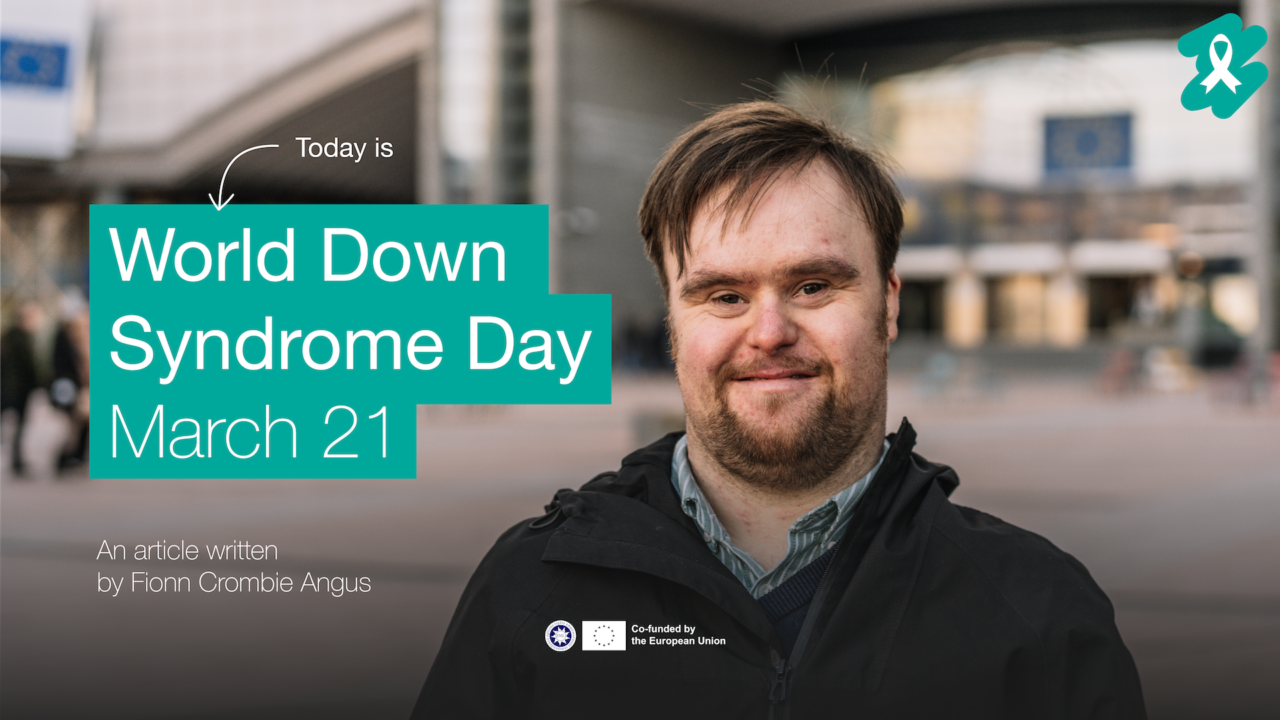1. Introduction
In this article, I want to celebrate World Down Syndrome Day by telling a wider audience all about Down Syndrome and its global awareness day.
I also want to use this opportunity, on this important election year, to highlight an existing barrier to equality for people with disabilities – the right to political participation.
2. What is Down Syndrome and the History of World Down Syndrome Day?
Some people call it Trisomy 21. That is because it is a condition where the person has an extra chromosome. Around 1 in every 800 babies will be born with Down Syndrome, Down Syndrome occurs naturally- there is no known cause to this. Down Syndrome usually causes varying degrees of intellectual and physical disability and associated medical issues.
On the 19th of December of 2011, the United Nations General Assembly declared that the 21st of March as World Down Syndrome Day. This is the day because its people with Down Syndrome are being recognised internationally by both MPs and MEPs worldwide.
World Down Syndrome Day a global awareness day which has been officially observed by the United Nations since 2012.
3. The right to political participation for people with disabilities
Where does the right come from?
It comes from the Convention on the Rights of People with Disabilities. People with disabilities have the right to vote and to stand as a candidate and stand for elections under article 29. The article also refers to other measures aimed at ensuring that people with disabilities can participate in public and political life without discrimination.
What are two elements of the right?
The two elements of the right to political participation are voting and standing for office.
For people with intellectual disability there must be accessible information to work with for them to vote on an equal basis with others. Governments ensure that voting procedures and materials are accessible and easy to understand to facilitate the use of new technologies to support people with disabilities; to ensure the expression of their free will; and to provide assistance in voting by person of their choice.
People with intellectual disability also need accessibility measures to be able to run for office on an equal basis with others. One of the biggest obstacles in society is people’s low expectations and another one is the lack of respect of people with Down Syndrome. In this article I would like to highlight some amazing people with Down Syndrome who are politically active. Despite other people’s low expectations.
4. Good news despite the barriers
The first of these people are Mar Galceran and Angela Bachiller
Mar Galceran is from Valencia Spain and is apart of the people’s party and Angela Bachiller is from Valladolid Spain who became Spain’s first city councillor with Down Syndrome and also from the people’s party
News that Galcerán had obtained a seat in the regional parliament came soon after. “Welcome Mar,” the region’s PP leader, Carlos Mazón, wrote on social media. “Great news for politics, overcoming barriers.”
In Spain, Galcerán’s path into politics was blazed by Ángela Bachiller, who in 2013 became Spain’s first city councillor with Down’s syndrome in the northern city of Valladolid.
Galcerán may be the first in Europe, however, to join a regional or national parliament, according to Spain’s Down’s syndrome federation.
The second person I want to highlight is Fintan Bray.
Fintan is from Westmeath, a town in Ireland, my home country. Fintan became the first person with Down Syndrome to be elected to a senior position within a political party in Ireland on October 2022. Fintan became a member of Fianna Fail, a politicly right of centre party for almost 20 years now.
Fintan got praise from both Pat Clark and Alejandro Moledo from the European Disability Forum.
“For persons with disabilities, there exist legal barriers in the EU for being candidate, and sometimes for voting” – Alejandro Moledo.
Fintan says himself: “Maybe I will consider being a candidate [for the EU elections] in the future. For the moment, I want to be a voice for my community, so they can have what I have.”
One of Fintan’s main objectives for now is to defend the right to work for people with disabilities. He is currently trying to push for more accountability within employing disabled people.
“A lot of my friends with Down Syndrome are getting a few hours a week work and are not being paid“, he said. And he is determined on pursuing his fight.
5. Conclusion
I hope to have helped readers understand better, number 1: What is World Down Syndrome Day, number 2 What barriers are still faced and number 3 how my community continues to excel despite the obstacles proving that people with Down Syndrome are capable. We just need the world to recognize us.
Happy World Down Syndrome Day!



